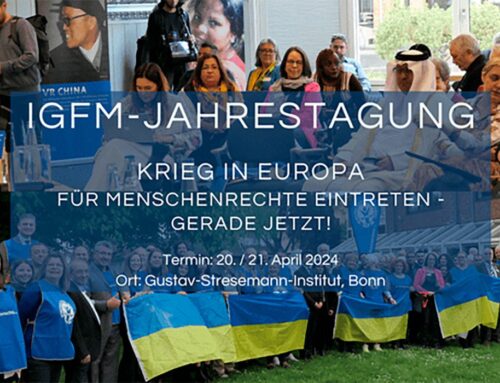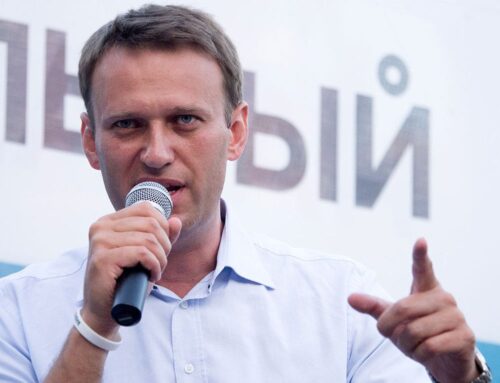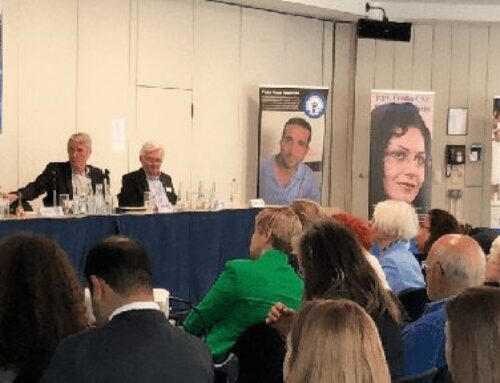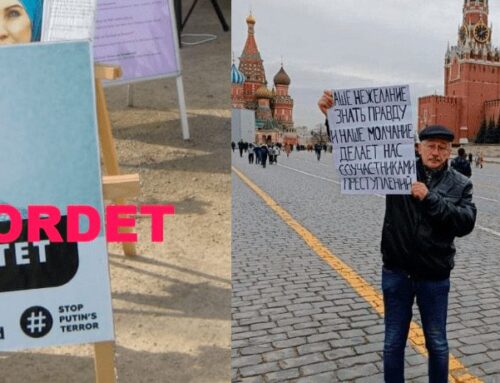Monitoring of the trial of Darya Mastikasheva

The photo was taken by mother of Darya Mastikasheva
On November 1, 2017, in Dnepr (Ukraine), a trial was held on the case of Darya Mastikasheva, a Ukrainian citizen residing in Russia. She is accused of a high treason performed by way of recruiting veterans of the antiterrorist operation in the East of Ukraine (ATO) to imitate preparation of terrorist acts in Russia, which would be used by the Russian intelligence service to discredit the Ukrainian authorities. The experts of the International Society for Human Rights started monitoring of this litigation.
Abduction. On August 15, 2017, Darya Mastikasheva was kidnapped. According to the claim by the accused, armed masked men had blocked her car and took her in the unknown direction. In the course of several days she was subjected to torture and intimidation of assault for her mother and son, unless she claimed that she was cooperating with the Russian intelligence service and was instructed by them to come to Dnepr for the purpose of recruiting the ATO veterans to be sent to Russia and committing “…actions which, while not constituting any social threat, but based on a number of certain features can resemble the actions aimed at preparation of a terrorist act or a diversion” (quoted based on the text of the notice of suspicion). After Darya Mastikasheva gave her consent, a video with her confession was shown by the Head of the Security Service of Ukraine (SBU) Vasily Gritsak at a press-conference in Kiev (held on August 17, 2017) where the Head of SBU made a report of detention of a dangerous spy. It is important to note that the official detention of Darya Mastikasheva occurred after the press-conference of Vasily Gritsak. This means that in the course of two days she was subjected to an unlawful detention aimed at “making” her confess by a way of torture and intimidation. It has not been until August 17, 2017 that the lawyer was admitted to the accused. The fact of tortures the woman was subjected to is confirmed by a photo made by her mother, the shot clearly shows the signs of beatings on the face of Darya Mastikasheva. According to the lawyer, the guards who had allowed picturing of the accused being in such a state, are already fired.
Psychological expertise. During her time in custody, Darya Mastikasheva staged a hunger strike as a protest against non-provision of the medical aid that she required due to aggravation of her physical condition resulting from the tortures she was subjected to (from August 19, 2017 she has not received any medical aid). After that the investigator decided to hold a psychological examination. On October 31, 2017, the SBU staff took the accused to a psychiatric hospital for holding an expertise. The demands of Darya Mastikasheva to provide for a presence of her lawyer for the time of the expertise were ignored. The doctor who refused to identify his personal information to defense (provided only the name and patronymic name) intimidated Darya Mastikasheva that she would be placed into the psychiatric hospital for sixty days, unless she agreed for an examination without a lawyer present.
The experts of ISHR note that in the event of an insanity plea in respect of Darya Mastikasheva she will be deprived of legal capacity, which means all her claims (on abduction, tortures etc.) will have no legal force. Therefore, representatives of law enforcement bodies would be able to escape any responsibility for those actions.
The course of the court hearing. A petition of appeal challenging detention of Darya Mastikasheva, which was filed by defence, was considered at the trial. The court ruled to continue keeping the accused in the Pre-trial Detention Centre. In the course of the court hearing, several petitions made by defense are of interest to the monitoring of the right to a fair trial:
1) The lawyer made an intercession that a video containing a confession by Darya Mastikasheva shown at the press-conference by Vasily Gritsak be included into the case. As it turned out in the process of the hearing, not only the video wasn’t included into the case but, according to the answers received from the law-enforcement bodies (obtained upon the lawyer’s request), this video does not exist, since no official video recording of Darya Mastikasheva interrogations was performed.
The lawyer informed that he had a recording of the video but the court refused to include it in the materials of the case. Grounding their decision, the panel of judges claimed that another criminal case was opened based on the fact of tortures and abduction of Darya Mastikasheva and that the video was not an evidence in the case of a high treason. It must be noted that the video can be the evidence of an illegal detention of the accused and in such a case the evidence obtained (testimony by Darya Mastikasheva, searches of her home and car) could not be used in court. This is confirmed by practice of the European court for human rights (cases “Grigoriyev against Ukraine” and “Nechiporuk and Yonkalo against Ukraine”) according to which any evidence obtained as the result of tortures constitutes a violation of article 6 of the European Convention on Protection of Human Rights and Fundamental Freedoms and serves as a ground for re-consideration of a case.
2) The lawyer Valentin Rybin claimed he was not given a possibility to make copies of the documents based on which a decision on keeping Darya Mastikasheva in custody had been ruled. The court allowed the defender to familiarize himself with the materials only. Also, at the time when the video with confession of the accused was watched, the court retreated into the deliberations room and, by doing so, deprived the parties of a possibility to give comments on that evidence.
The practice of “retaining” the information which is important to the process, such as refusals to provide copies of documents to the side of defence and consideration of evidence in the absence of the parties of the process does not comply with the adversarial principle and the principle of equality of parties, which constitutes a violation of the right to a fair trial.
3) It turned out in the course of the hearing that no investigator visited Darya Mastikasheva in the case of abduction and tortures, and the case itself was opened after the lawyer had filed a claim on omission to act on the part of law-enforcement bodies.
This case is an important component of the whole process against Darya Mastikasheva, if the fact of abduction and tortures is acknowledged, the episode with accusation in a high treason will lose a major part of the evidentiary base.
The court did not disclose a date of the next hearing. The experts of the International Society for Human Rights will continue monitoring and clarifying the details of this trial.
Expert Council of ISHR








Leave A Comment